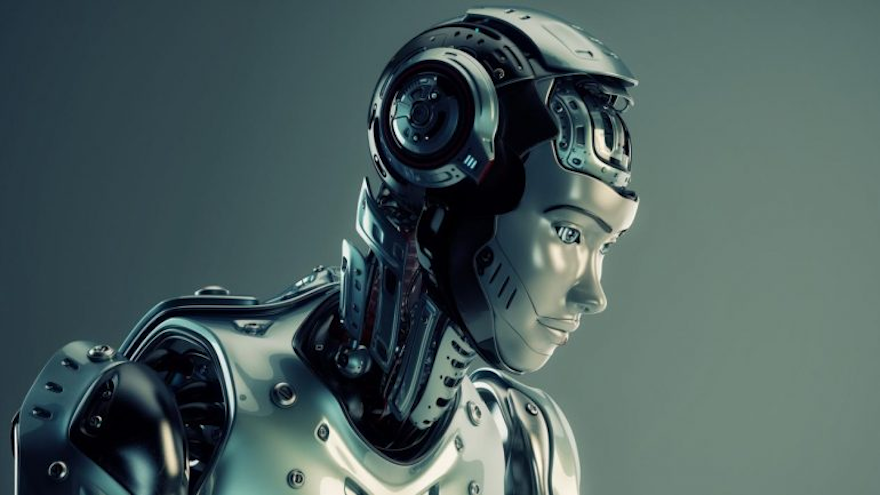
| CLICK HERE TO VIEW ALL DOCUMENTARIES |
The world of filmmaking is on the brink of a revolutionary transformation, courtesy of artificial intelligence (AI). This disruptive technology, with its potential to analyze, learn and create, has already made significant strides in numerous industries. Now, its sights are set on documentary filmmaking. AI-produced documentaries represent the next big step in cinematic evolution, promising to reshape the landscape of visual storytelling. But why is this change inevitable, and what does it signify for filmmakers and audiences alike?
1 • Data-driven Storytelling: AI thrives on data. By analyzing extensive databases of documentaries and related content, AI can identify patterns, trends, and impactful storytelling techniques. This process, paired with the constant learning and evolving nature of AI, can guide the production of compelling narratives that resonate with audiences.
2 • Automated Editing and Post-Production: One of the most time-consuming aspects of documentary production is the editing and post-production process. AI is already demonstrating its capabilities in automating these processes, saving valuable time and resources. With AI, filmmakers can seamlessly organize, sequence, and edit footage, and even adjust color grading or apply special effects.
3 • Efficient Research: Documentary filmmaking often involves extensive research, requiring hours of combing through archives, interviews, and data. AI can expedite this process with its ability to analyze vast amounts of information quickly and accurately. It can pinpoint relevant materials and provide insights that might otherwise be overlooked, enriching the final narrative.
4 • Dynamic Content Creation: By leveraging deep learning algorithms, AI can generate original visual and audio content. This can lead to the creation of AI-produced animations, voiceovers, and music scores that contribute to the overall cinematic experience. These capabilities allow for more dynamic and diverse storytelling.
5 • AIAccessibility and Democratization: The adoption of AI in documentary production democratizes filmmaking by making it accessible to a broader range of creators. This is especially beneficial for independent filmmakers, who can use AI tools to overcome budgetary constraints and bring their unique stories to life.
6 • AI Real-time Adaptation In the future, AI could allow for documentaries that adapt in real time based on viewer feedback or changes in the data being portrayed. This would result in a more interactive and engaging viewer experience.
While AI’s potential in reshaping documentary production is vast, it’s essential to understand that its role is not to replace human creativity and judgment. Filmmaking is an art, and the human element—our emotions, experiences, and intuition—remains irreplaceable. Instead, AI should be seen as a tool that assists filmmakers, enabling them to focus on the creative aspects of storytelling while AI handles the more tedious, repetitive tasks.
AI-produced documentaries also pose new challenges and ethical considerations. Questions around accuracy, bias in AI algorithms, and the authenticity of AI-generated content are critical points of discussion that the industry must address as this technology matures.
As we stand on the precipice of this exciting new era, one thing is certain: AI-produced documentaries are coming, and they hold the promise of a richer, more diverse cinematic landscape. With this blend of technology and creativity, we can look forward to narratives that are not only engaging and insightful but also reflective of our changing world.

| CLICK HERE TO VIEW ALL DOCUMENTARIES |
The world of filmmaking is on the brink of a revolutionary transformation, courtesy of artificial intelligence (AI). This disruptive technology, with its potential to analyze, learn and create, has already made significant strides in numerous industries. Now, its sights are set on documentary filmmaking. AI-produced documentaries represent the next big step in cinematic evolution, promising to reshape the landscape of visual storytelling. But why is this change inevitable, and what does it signify for filmmakers and audiences alike?
1 • Data-driven Storytelling: AI thrives on data. By analyzing extensive databases of documentaries and related content, AI can identify patterns, trends, and impactful storytelling techniques. This process, paired with the constant learning and evolving nature of AI, can guide the production of compelling narratives that resonate with audiences.
2 • Automated Editing and Post-Production: One of the most time-consuming aspects of documentary production is the editing and post-production process. AI is already demonstrating its capabilities in automating these processes, saving valuable time and resources. With AI, filmmakers can seamlessly organize, sequence, and edit footage, and even adjust color grading or apply special effects.
3 • Efficient Research: Documentary filmmaking often involves extensive research, requiring hours of combing through archives, interviews, and data. AI can expedite this process with its ability to analyze vast amounts of information quickly and accurately. It can pinpoint relevant materials and provide insights that might otherwise be overlooked, enriching the final narrative.
4 • Dynamic Content Creation: By leveraging deep learning algorithms, AI can generate original visual and audio content. This can lead to the creation of AI-produced animations, voiceovers, and music scores that contribute to the overall cinematic experience. These capabilities allow for more dynamic and diverse storytelling.
5 • AIAccessibility and Democratization: The adoption of AI in documentary production democratizes filmmaking by making it accessible to a broader range of creators. This is especially beneficial for independent filmmakers, who can use AI tools to overcome budgetary constraints and bring their unique stories to life.
6 • AI Real-time Adaptation In the future, AI could allow for documentaries that adapt in real time based on viewer feedback or changes in the data being portrayed. This would result in a more interactive and engaging viewer experience.
While AI’s potential in reshaping documentary production is vast, it’s essential to understand that its role is not to replace human creativity and judgment. Filmmaking is an art, and the human element—our emotions, experiences, and intuition—remains irreplaceable. Instead, AI should be seen as a tool that assists filmmakers, enabling them to focus on the creative aspects of storytelling while AI handles the more tedious, repetitive tasks.
AI-produced documentaries also pose new challenges and ethical considerations. Questions around accuracy, bias in AI algorithms, and the authenticity of AI-generated content are critical points of discussion that the industry must address as this technology matures.
As we stand on the precipice of this exciting new era, one thing is certain: AI-produced documentaries are coming, and they hold the promise of a richer, more diverse cinematic landscape. With this blend of technology and creativity, we can look forward to narratives that are not only engaging and insightful but also reflective of our changing world.
| CLICK HERE TO VIEW ALL DOCUMENTARIES |

 RayGam AI Produced Videos
RayGam AI Produced Videos